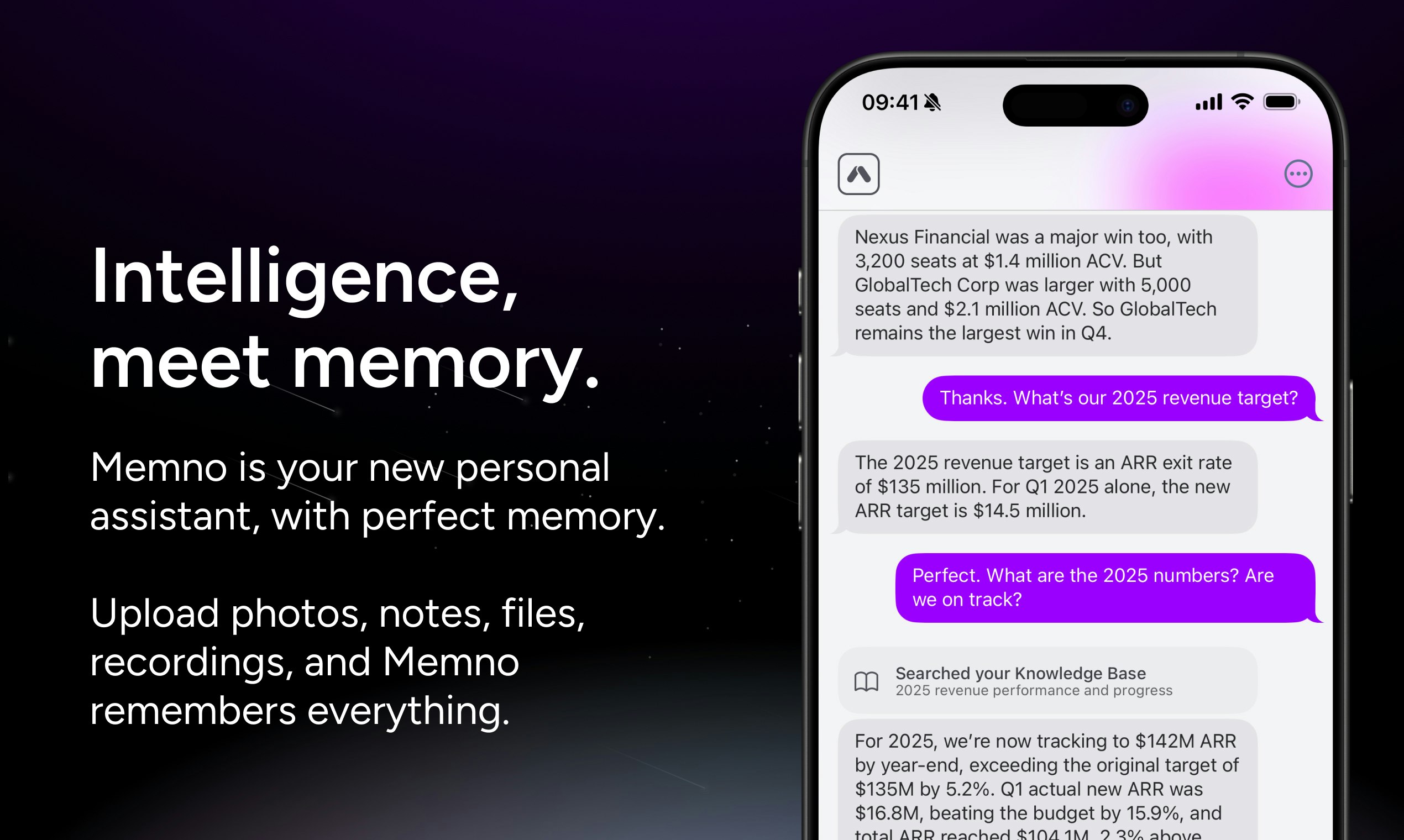
Table of Contents
Overview
Modern note-taking methods often fragment vital information across apps, documents, and voice memos, making it hard to recall exactly what you need when you need it. Memno is an AI-powered personal memory assistant that consolidates all your inputs—photos, voice recordings, text, even emails—into a single, searchable “memory bank.” Over time, it builds a personalized knowledge graph so you can retrieve contextually relevant details with natural-language queries or automate tasks based on your own notes.
Key Features
Memno’s capabilities span capture, search, and action:
- Voice and image capture: Record voice notes or snap photos (e.g., whiteboards, documents) directly from mobile or web, all of which Memno transcribes and OCR-processes.
- Semantic memory search: Find past inputs using conversational queries—Memno understands meaning, not just keywords.
- Task automation: Trigger workflows (e.g., reminders, list creation) based on your stored notes or voice commands.
- Context-aware scheduling: Convert voice memos about dates or events into calendar entries and bookings.
- Adaptive memory engine: Learns your context over time, surfacing connections between new and old inputs while limiting erroneous “hallucinations.”
How It Works
- Capture: Use the iOS app, web app, or email forwarding to feed Memno with voice recordings, photos, documents, and emails.
- Process: Memno runs multiple AI pipelines—transcription, OCR, NLP—to extract every detail and index it within your private memory vault.
- Query: Enter natural-language prompts such as “Show me last month’s contract terms” or “Reschedule my dentist appointment,” and Memno retrieves or acts on the relevant memory.
- Automate: Enable integrations (calendars, email) so Memno can execute tasks—sending invites, making calls—while maintaining human oversight for approval.
Use Cases
Memno enhances personal productivity and collaboration:
- Document recall: Instantly locate specific clauses or figures from photos of contracts or meeting whiteboards.
- Voice-driven scheduling: Speak availability or event details and have Memno book and confirm meetings.
- Personal reminders: Convert fleeting thoughts (“need to buy printer ink”) into reminders or shopping lists.
- Creative work capture: Store and organize inspirations—sketches, melody snippets, story ideas—for later retrieval and development.
Pros \& Cons
Advantages
- Multimodal capture: Supports voice, images, text, and email for a unified memory system.
- Contextual recall: AI-driven search surfaces relevant memories even without exact keywords.
- Actionable memory: Beyond recall, it automates tasks like scheduling or reminders based on historical data.
Disadvantages
- Early-stage AI correctness: Occasional misinterpretations may require manual review.
- Data privacy consideration: Storing personal voice recordings and documents in the cloud necessitates strong security and clear privacy policies.
How Does It Compare?
Memno’s focus on a personal, context-aware memory vault and task automation sets it apart from other tools:
- Rewind AI: Records and indexes everything on your desktop but lacks the breadth of mobile capture and built-in task automation that Memno provides.
- Mem AI: Excels at text-based note linking and workspace management but offers fewer capabilities for voice/image inputs and real-world task execution.
- Notion AI: Delivers broad workspace organization and content generation but is primarily document-centric, without a dedicated personal memory graph or automated real-time scheduling features.
Final Thoughts
Memno represents a significant advancement in personal AI assistance by seamlessly capturing diverse inputs, delivering context-driven recall, and automating everyday tasks. While emerging AI reliability and data privacy are valid considerations, its multimodal memory engine and built-in action capabilities make Memno a compelling tool for anyone who needs an ever-present, truly intelligent memory partner.

